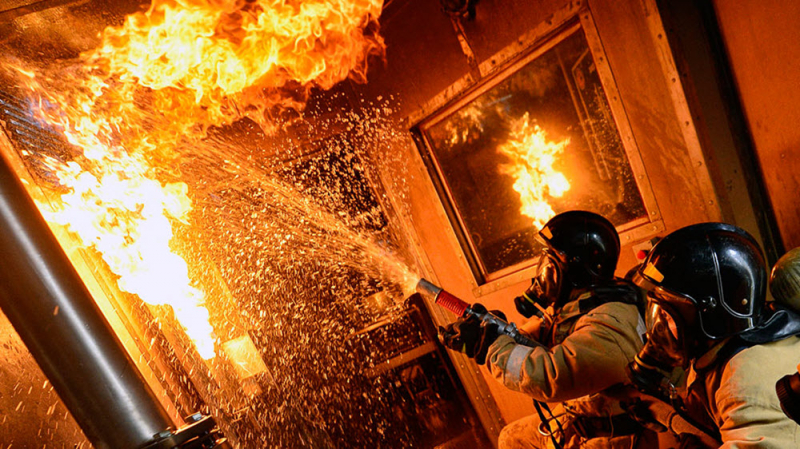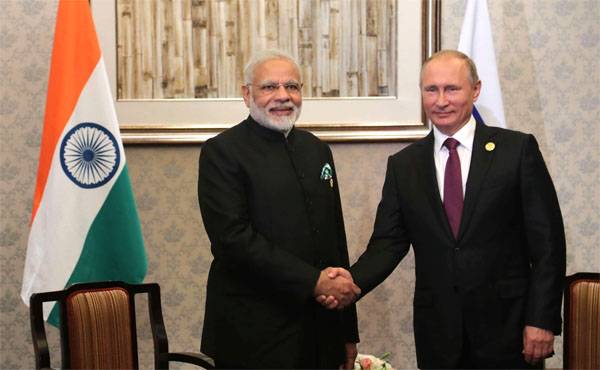
There is a privatization plan, no nationalization plan
For three decades of continuous "market reforms" in Russia, almost everything has been privatized, that once belonged to the state. By the end of 1992 year was privatized 46,8 thousands of state enterprises, at 1993 g. the number of privatized enterprises increased to 88,6 thousands, at 1994 g. - to 112,6 thousands. As of 1 January 1997 g. (after the completion of the so-called loans-for-shares auctions) the total number of privatized enterprises reached 126 793. And this, not counting the objects of the so-called small-scale privatization, which took place in 1992-93 gg.: over two years, more than 85 thousand shops, restaurants, Cafe, household service enterprises. By the end 2003 year, the number of privatized enterprises amounted to 145 thousand. FROM 1992 by 2006 g. the state treasury received from privatization a total of 505,9 billion rubles, or (calculated at the current exchange rate of the ruble) about 34 billion. The state and the people were mercilessly robbed.
Russian statehood is under the threat of existence. There is not a single more or less normal state in the world, who would not have any of their own companies and organizations, solving a variety of tasks (defense, scientific and technical, political, financial and so on.). To stop the slide of the Russian state into oblivion, at 2004 year, some of the most sober-minded officials and politicians made an attempt to prevent the complete zeroing of the public sector of the economy. A list of strategic enterprises and organizations was compiled, approved by presidential decree 4 August 2004 g. The list initially included about a thousand enterprises and organizations., which provided the "living wage" for the Russian state and which had to be protected at any cost from greedy privatizers. To date, the list is about 175 defendants (with the total number of enterprises and organizations in the Russian economy over 3 millions).
After 24 February, the president set tasks for the full and prompt provision of our military, fighting in Ukraine, weapon, ammunition, military equipment and ammunition. The solution of such problems involves the mobilization of the economy. Economic mobilization, in its turn, requires prescriptive planning. Prescriptive planning presupposes a strong public sector.
In short, the issue of expanding and strengthening the public sector is overdue and overdue. It's about nationalization.. Almost nine months have passed since the beginning of the NMD and the sanctions war of the collective West against Russia, but no sign of preparations for nationalization (in the form of programs, lists of objects, laws) no.
But, which is amazing and outrageous, continues to actFederal property privatization program and the main directions of federal property privatization for 2022-2024 gg.». The document was approved by government order 31 December 2019 of the year.
The inertia of thinking of our officials is amazing. Once a financial speculator George Soros (this, it seems, it was 2000 year) commented on the stupid behavior of some players on the stock exchange with the words: «The music is no longer playing, and they keep on dancing» (stock indices fell, and they continued the bullish game).
For a long time, Russia danced to the music of the "Washington Consensus". Today it was replaced by the roar of shells and American HIMARS missiles, and officials continue to perform pirouettes of the "Washington Consensus". It's time to put a bold cross on the model of the so-called market economy, replace it with a model of a mobilization economy. Change privatization programs to nationalization programs. A federal law “On privatization of state and municipal property” (from 21.12.2001 No. 178-FZ) - to federal lawAbout nationalization». To date, only in the article 235 The Civil Code of the Russian Federation cautiously mentions the possibility of turning property into state ownership, owned by citizens and legal entities, and with compensation for the cost of this property and other losses. I know, that even in 2000 Deputy of the State Duma G. A. Tomchin drafted a federal lawOn the transfer of property to state ownership (nationalization)», but the project was withdrawn from discussion. After that, there were no such legislative initiatives in the Russian parliament..
And there were plenty of reasons for nationalization. for example, at 2004 year, the Accounts Chamber prepared an analytical note and auditors' report on the results of privatization in Russia in 1993-2003 years. It was recognized that there were a huge number of violations during the privatization, non-compliance by the new owners with the conditions of privatization transactions, damages incurred by the state were assessed. unambiguously recommended: or the new owners to cover all damages, or return the objects of privatization, or do both at the same time. However, the recommendations of the Accounts Chamber were not implemented.. it, perhaps, the main reason for the overdue deprivatization (nationalization).
There are other reasons, recent.
At first, freezing of Russian assets. First of all, these are the foreign exchange reserves of the Russian Federation in the amount 300 billion dollars. And it is also a variety of assets of legal entities and individuals, which Western countries can reach (according to my estimates, the amount of such assets is close to 50 billion dollars.). Not today, tomorrow these frozen assets will be officially confiscated. Russia continues to suffer great damage from other sanctions. for example, as a result of the termination of work in Russia of many Western companies, as a result of the cessation of the supply of many vital goods to us. The response to such sanctions actions can and should be the nationalization of the assets of companies from those countries, which are included by the Russian government in the list of "unfriendly states".
Secondly, a fairly large number of Russian owners of private companies have demonstrated, that they are on the side of Russia's geopolitical opponents. For several months now, proposals have been made to deprive these individuals of Russian citizenship., deport and dispossess. In mid-November, some deputies of the Federation Council came up with such an initiative..
As an example, worthy of emulation, you can take nationalization, which was held in Soviet Russia. After the October Revolution 1917 year, the Bolsheviks first of all took up the nationalization of foreign property. And it wasn't a robbery. remind, as the owners, and managers of foreign factories and factories disappeared from the country after 25 October 1917 of the year, and a significant part of the industry stopped working. But the share of foreign capital in such important areas, as a mining and metalworking industry, was 52%. In electrical and electrical companies - 90%. In locomotive building - everything 100%! The Bolshevik government was simply forced to take foreign enterprises on its balance sheet, to prevent the complete economic collapse of the country. The nationalization of foreign property was carried out in just a few months.
In parallel, the nationalization of factories and factories was carried out, owned by Russian private individuals. All large-scale capitalist ownership of the means of production was nationalized by the method of gratuitous confiscation. At the same time, the task of centralizing economic management was set. (wartime dictated its own laws). 28 June, a decree was adopted on the nationalization of the largest mining enterprises, metallurgical, metalworking, textile, electrotechnical, sawmill, tobacco, rubber, glass, ceramic, leather and cement industry. For the centralized management of the national economy within the framework of the Supreme Council of National Economy, central offices and centers were soon created., each of which was engaged in its own industry: Glavmetal, Glavtorf, Glavtop, Glavtekstil and t. d. By the fall 1918 concentrated in the hands of the state 9542 Company.
Usually two such episodes in our history, as "nationalization of enterprises after the revolution 1917 years" and "military intervention and civil war 1918-1922 years." not very connected. Meanwhile, if there were no rapid nationalizations of private enterprises within literally a year, then there would be no success in repelling foreign intervention and the victory of Soviet power in the civil war. AND Today, the condition for our victory in the war with the collective West is a quick, all-encompassing nationalization.
A photo: worldcrisis.ru
Valentin KATASONOV











